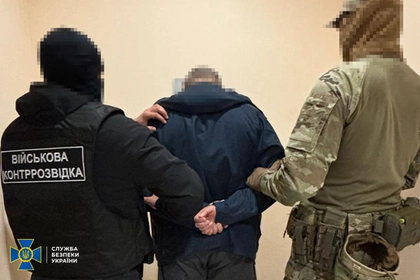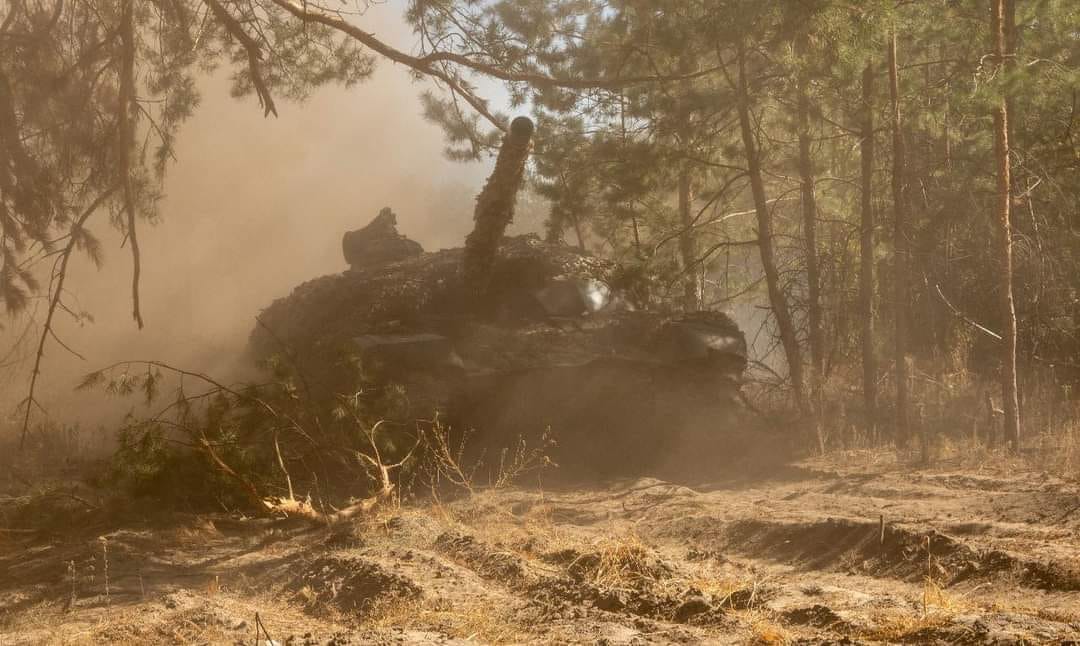A long-awaited Kremlin offensive recently kicked off to liberate a Luxembourg-sized chunk of Russian Federation territory held by Ukraine hit tough defenses and saw spear tip units get stopped cold or wiped out, reports from Russia’s western Kursk region said on Monday.
Ukrainian media widely reported details, and was thick with images of the near total destruction an armored attack launched by Russia’s elite 810th Marine Infantry Brigade on Thursday.
JOIN US ON TELEGRAM
Follow our coverage of the war on the @Kyivpost_official.
A rare daylight charge by a confirmed 15 late-model BTR-82A armored personnel carriers loaded with infantry, near the villages of Novaya Sorochina and Pogrebki at the northern apex of the Ukrainian enclave in Russia, drove into a concealed minefield and was destroyed in less than an hour of intense combat, video confirmed by combat reports showed.
At the height of the battle at least four BTRs carrying at least 30 men drove one after the other onto mines, in a space of ground smaller than a basketball court, and blew up spectacularly, video showed.
Other grisly images showed corpses scattered around smashed vehicles and wounded without medics.
Kamikaze drones operated by pilots supporting Ukraine’s 95th Air Assault Brigade hunted down individual Russian marines still on their feet.
The disastrous attack was confirmed on both sides. The widely-read Russian milblogger, Romanov, on Monday said of the assault and the Ukrainian video documenting its destruction: “The reason for what you see in the footage was because of more lies by local commanders to the (Russian) General Staff. Earlier, false information was reported that the road (on which the combat vehicles later blew up) was under our control. It is logical that after receiving this information, the General Staff gave the order to storm the settlement (Pogrebki).”“But before the attack, no one even thought to demine the road. In general, deliberate misinformation of the General Staff by the command of the 810th is already an established practice,” Romanov told 140,000+ Telegram followers.

SBU Reports Capturing Ukrainian Officer Leaking Special Ops Plans to Moscow
To the west of the Pogrebki battle, Russia’s picked 51st Airborne Regiment fielded tanks, dune buggies and infantry fighting vehicles hit Ukrainian positions on the north-western face of Kyiv’s salient inside Russia in attacks lasting through the weekend.
Sources in Ukraine’s 47th Mechanized Brigade, a favored formation equipped with US-made M1 Abrams tanks and M2 Bradley infantry fighting vehicles, said the Russian paratrooper attacks were repelled with losses.

According to unconfirmed counts by drone operators supporting the 47th Brigade, all the dune buggies and 11 infantry fighting vehicles were knocked out. Kyiv Post was not able to confirm this Ukrainian kill claim.
Western media, citing unnamed US and NATO intelligence officials, reported that Russia since early November had assembled between 40-50,000 men in Kursk region with the mission of ejecting Ukrainian forces from there by the end of 2024.
Russian President Vladimir Putin in mid-August, at the outset of Ukraine’s invasion of Russia, ordered enemy forces ejected from the Russian Federation by Oct. 1 and then Oct. 17, but those deadlines were missed.
Kyiv’s successes at Liubimovka and Pogrebki/Novaya Sorochkina had, by Monday, not visibly reduced Russian pressure against the Ukrainian enclave in Russia, and heavy ground assaults backed by artillery and air strikes against Ukrainian positions were continuing, a Monday Ukrainian Army General Staff statement said.
Russia’s Defense Ministry on Monday said that it estimates Ukraine has deployed 14 combat brigades inside Russia, and that over the weekend they launched seven assaults against Russian positions, all allegedly repelled. There was no information about the fact or progress of Russian attacks against the Ukrainian enclave in the Kremlin statement.

Russian tactics against strongly-defended Ukrainian positions, now in wide use for more than a year, combine preliminary heavy bombardments by aircraft dropping glide bombs from outside the range of Ukrainian air defenses, and then follow up armored assaults that accept heavy losses in men and machines to push infantrymen a short distance forward, where they can dig in.
A social media post from the “Peaky Bliders” team, a Ukrainian strike drone unit in action in the Kursk region, said of the Russian tactics: “In general, the Russian offensive tactic is very simple and personnel-intensive. First, several infantry fighting vehicles with troops on board break into the defensive line. Most of the soldiers are blown into bits along with the armored vehicles. But some of them (that survive) entrench in the position they captured and wait for reinforcements.”
Ukraine’s national leadership, in late October, announced North Korean troops sent into Russia to beef up Russian formations were approaching the Kursk battlefield. Over the weekend, Ukrainian military spokesmen claimed Kyiv’s forces had hit some of those troops with “indirect fire,” meaning artillery or rockets.
Russian milbloggers have reported training between North Korean troops has begun, but progress is difficult because none speak Russian, and Korean-speaking translators are in short supply.
Estimates of the North Korean troop contingent in Kursk region vary widely, but most often suggest they number around 10,000 men, or roughly one-fourth or one-fifth of the army assembled to liberate territory occupied by Ukraine. Ukrainian military intelligence has said the North Koreans are lightly armed with personal weapons, small caliber mortars and no armored vehicles or artillery.
On Nov. 9 Ukraine’s army intelligence agency, HUR, published a recording it said was an intercept of North Korean soldiers talking by short-range, FM radio. In the one-minute recording, two male call signs using Korean discussed a repair crew that had lost its way and needed to return to its unit.
You can also highlight the text and press Ctrl + Enter






